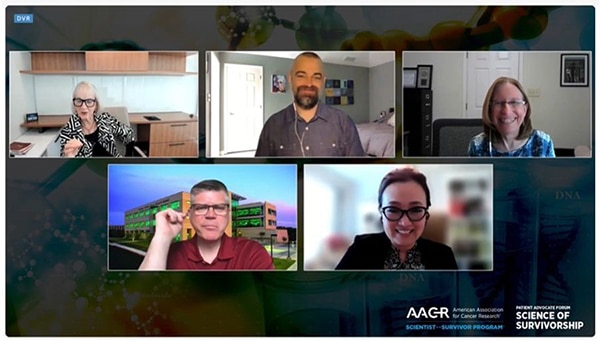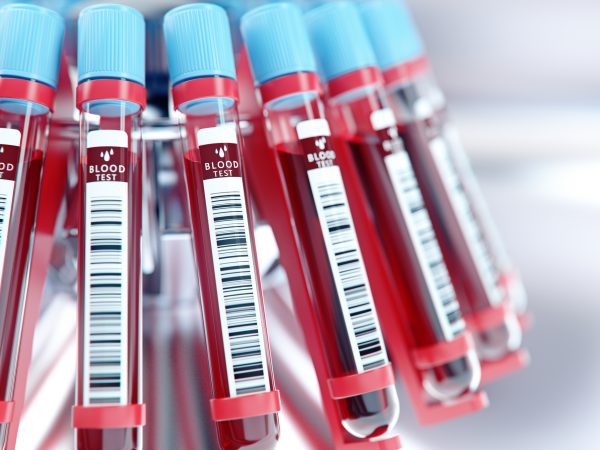As More Cancer Patients Survive Their Disease, Long-term Effects Alter Lives
Gregory J. Aune, MD, PhD, is a renowned pediatric oncologist with a powerful story. At age 16, he was diagnosed with Hodgkin lymphoma. His successful treatment inspired a passion in science and led him to a thriving career in cancer research and patient care.
This fall, he’ll watch proudly as his first set of twins begins college while his second set of twins takes on high school. People see him as a respected doctor, a happy husband and father, and a powerful advocate for today’s pediatric cancer patients.
What people don’t see: The physical problems that have plagued him in the 30 years since he was declared cancer-free. These include hypothyroidism, pulmonary fibrosis, infertility, aortic stenosis, coronary artery disease, secondary skin cancer, a mild stroke, diabetes, and pulmonary hypertension.
Those ailments, known as late effects, are the price of the progress that’s been made against cancer. Punishing physical problems, deep financial debt, and lingering emotional strain affect many cancer survivors, and are worthy of an increased focus from cancer researchers, Aune and fellow panelists said Tuesday in an American Association for Cancer Research (AACR) Patient Advocate Forum on the Science of Cancer Survivorship.

Thanks to advances in diagnosis and treatment, more people than ever are surviving cancer. In 1971, when the National Cancer Act took effect, there were approximately 3 million cancer survivors in the United States. Today, there are more than 18 million, and that number is projected to top 20 million by 2040.
As the number of cancer survivors grows, and many people live decades beyond their illness, cancer survivorship is gaining attention as an important and understudied area of research.
“The survivorship trajectory is fraught with many challenges,” said Susan Hong, MD, MPH, director of the Cancer Survivorship Program at VCU Massey Cancer Center. “Truly, survivorship care should begin at the time of diagnosis, with a multidisciplinary approach that can help mitigate these challenges.”
Hong said that, as in many other aspects of cancer care, racial and ethnic minorities and other underserved populations experience disparities as survivors, such as increased rates of financial toxicity and higher rates of some side effects. Targeting these disparities should be a focus of cancer centers, she said.
Learning from long-term survivors
Patty Spears was diagnosed with breast cancer in 1999. After completing treatment, she became a passionate advocate, joining the AACR’s Scientist↔Survivor Program (SSP) and serving on committees for the AACR, the U.S. Food and Drug Administration, and the National Cancer Institute. She is currently a research manager at the UNC Lineberger Comprehensive Cancer Center.
Spears lobbies for the increased use of patient-reported outcome measures, or PROMs, in cancer care. While clinical trials measure statistics such as response rate or overall survival, PROMs measure quality-of-life issues including side effects like nausea, or emotional issues like anxiety. Spears said PROMs are helpful in enhancing communication between patients and clinicians, and can help involve a diverse range of patients—“Every patient has the same opportunity to provide information to their care team,” she noted.
To date, there is no comprehensive national program to put PROMs in place. She told the panel that in order to expand awareness and use of PROMs, increased funding is necessary, whether from private funders or a government-backed program.
Adam Hayden, another SSP alumnus, is also committed to ensuring a better quality of life for patients living with and beyond a cancer diagnosis. In 2016, he was diagnosed with glioblastoma, a lethal form of brain cancer that often leads to death in less than 18 months.
As he marks nearly seven years with his disease, he has become a vocal advocate for palliative care, which focuses on managing symptoms and improving quality of life. In his case, working with palliative care professionals has helped him gauge when his physical condition might require him to use a cane or a wheelchair, and to help him manage symptoms so that he can continue taking care of his young children and working.
“It feels good to have purpose, to get up and work,” said Hayden, who is a writer and speaker with an academic degree in philosophy. “Palliative treatments can help me continue that work.”
Charting a course for survivorship research
Even as he acknowledges the long-term effects of the cancer treatments that saved his life and the lives of many of his pediatric patients, Aune knows they are effective.
“In our lifetimes, I don’t think we’re going to be able to take these medicines out of our regimens,” said Aune, who is the Greehey Distinguished University Chair for Cancer Survivorship in Children and an associate professor of pediatrics at UT Health San Antonio. “We’re better off trying to understand how they’re causing damage.”
Additional research into late effects would help clinicians determine treatment plans and counsel patients on risks, Aune and fellow panelists said. Aune presented four concrete ideas to advance cancer survivorship research: A scientific journal devoted to survivorship research; an annual scientific meeting devoted to preclinical survivorship research; specific funding mechanisms for basic science on survivorship; and the creation of a new institute within the National Institutes of Health, focused on cancer survivorship.
As the number of cancer survivors continues to grow, the AACR can and should be a leading voice in supporting research and ensuring their welfare, said Anna D. Barker, PhD, FAACR, the SSP founder who served as moderator of Tuesday’s panel. That message was underscored by AACR President Lisa M. Coussens, PhD, FAACR, who kicked off the discussion and thanked the panelists for sharing their experiences.
“The AACR has a long history of bringing patients together with scientists to change the world,” Barker said. “Understanding what’s happening with patients can only strengthen our research. Survivors provide such valuable real-world evidence, and we want you all to live long, happy lives.”
Later Tuesday night, Hayden shared the following reflection on Twitter:
The decision to go all in with patient advocacy was the best decision I’ve ever made. This doesn’t mean it’s easy. In fact, on days like today when I speak twice about illness it drains me. But we’re a little less alone. That’s why we do it. Speak bravely, friends.



